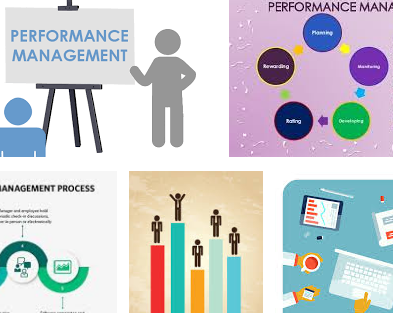It is important I guess to convey the challenges that have been identified in general to developing strategy that addresses the making of sustainability. Sustainability in this context refers to the parallel and unified achievement of the “long term economic, environmental and social objectives.”
Before I embark on that, I would like to thank all my readers for their great support thus far. It is an inspiration for me to stay imaginative and to contribute to building this website.
World Business Transformation
If you haven’t already explored this subject matter here is a vital indication. In 2010, the World Business Council of Sustainable Development has pointed a seemingly culture shift for significant transformation of the way the world do business. It thus have unique opportunities for businesses cease operate in business-as-usual mode. That means business leaders need to understand the conceivable shift around the global business landscape. This is important in terms of risks exposure and that leaders need to put in place change strategies for their businesses.
Shared Value Strategies for Change
Change culture essentially provides certainty which can actually reduce business risk to safeguarding its long term business competitive advantage. In general, unique opportunities come from how the business values its human resources in that transparency is vital. Let’s say a business’s willingness to pool resources from suppliers or the would-be new prospects that come from how your business operates? All these are important features that stem from the matchless business strategies which are unique. It thus suggests businesses need to change its fundamental value through Corporate Social Responsibility (CSR) to create “shared value.”
Shared value is indeed one of the common challenges around the attainment of sustainability by businesses facing these days to address the success of sustainability.
But first, the ability to reflect on the business strategy process and strategy formation is important. Why? Because according to research, we must have the gift to ask questions and make fewer expectations that permit ourselves to be drawn by real change. Interestingly, researchers say “we need better practice, not neater theory” suggest business theory had somewhat been re-defined for whatsoever reasons? Let’s not dwell into that. Instead, Researchers support that we must be approachable with these activities for instances the business’s “process and content, statics and dynamics, constraint and inspiration, the cognitive and the collective, the planned and the learned, the economic and the political” that are one way or another open and receptive.
Visions for Social Responsibility
Also, when it comes to understanding the link between competitive advantage and CSR, Porter and Kramer cite that businesses usual attitudes toward CSR are in fact patchy and divided. This can be described to as ambiguous, confusing or unclear because many of the businesses and their strategies ultimate visions are meant for businesses to value society. Businesses should then analyse their visions for social responsibility to make sure that CSR can be an inspiration rather than a price tag, a restriction, or a giving action –it can be a foundation of prospect, improvement, and economical advantage.
Making Better Decisions
Next, the challenge is about business execution approach in that academic state that the dictatorships approach to business strategy-execution as unresponsive. This type of approach is unfriendly in that leaders are to command the business’s established leading strategies that assume its subordinates to blindly follow. Although the “waterfall model” empowers staffs, by consenting them to use their finest judgment in the situations they come across is a model someway enhanced. But, in order to successfully allow those individual decisions, the leaders can support their employees to make better decisions.
Innovative Way to Value Creation
Lastly, the authors, Porter and Kramer’s suggestion of the invalid approach to creating shared value is a significant challenge. They believe many of the businesses’ thinking of creating shared value stay trapped. As they stayed in an invalid system that has been developed over the years. The fact that businesses remain narrowly understand the idea of value creation is not unbelievable. This is why businesses continue to be unconvinced even so to improving their short-term financial performance.
The most important customer needs and the wider effects that define their longer-term success are generally missed or ignored. So, as you read this section, think about this and why these business dealings can be untested to stay in the old practice of “social responsibility” mind-set?
The solution to this innocent question actually lies in the approach of shared value. The shared value approach by Porter and Kramer includes building business value in a manner that also builds value for the society by addressing their desires and challenges. The authors highlight that “Businesses must reconnect company success with social progress” is truly an innovative way to achieve economic achievement that gives rise to the transformation of business.
Conclusions
Overall, I would say the success of business sustainability is to envisage and safeguard the “long term economic, environmental and social objectives.” And business leaders need to put in place real change strategies that embrace human resources, by empowering staffs and to support them for better decisions making process. Business sustainability thus requires culture shift for significant transformation through shared value approach.










I enjoyed your article. I agree with you that business have to reform for the social movement that we have and are still going through. They can not succeed economically with out changing this aspect of the way they do business. The people have many channels now to look into and investigate areas of business. This is true with other areas beside business, like media. People can investigate and see what is really true versus believing what ever their glass box in their living room tells them. Other factors play a role in all these areas like tricking wording. If you can word it right people will believe what “sounds the best” I am interested in what and where you think today’s businesses are at with this social reform? Thank you.
Thank you Jason, I appreciate your comment.
I do agree with your argument that there are various channels these days to look into and explore areas of business. Given that the subject matter is every now and then contentious it highlights the complex environment linked to managing CSR and sustainability.
My view is that the present chaotic situation will stand until a new sense of balance is reached in that social reform depends on how the business sectors respond to and react upon these movements. In order to get to the finest result, it requires adaptive and motivated leaders to respond. It also highlights the particular qualities or leadership styles that enable real strategic sustainability practices are yet to be fully visible.
Best wishes, Anna